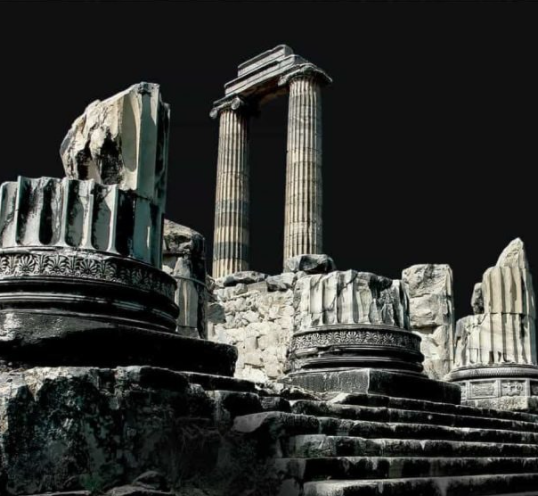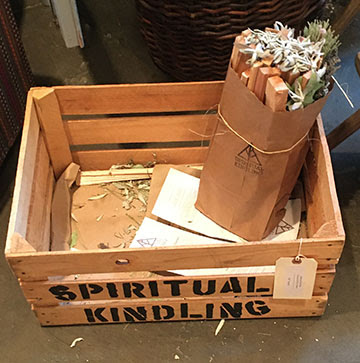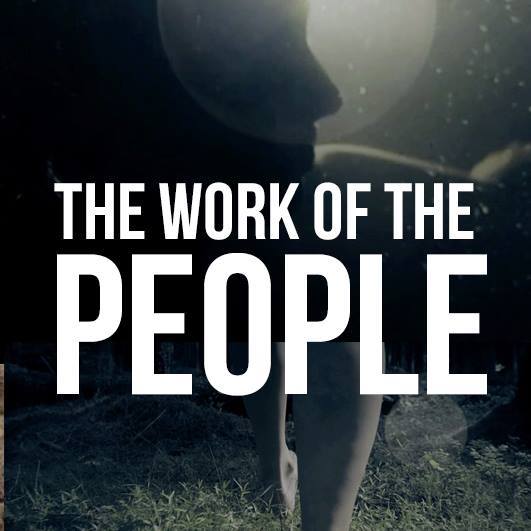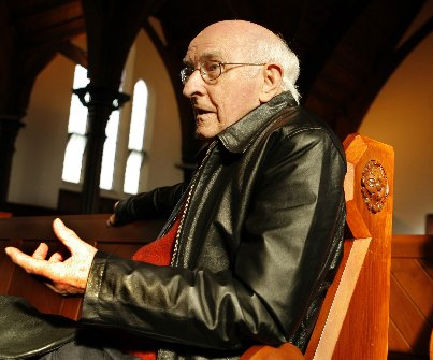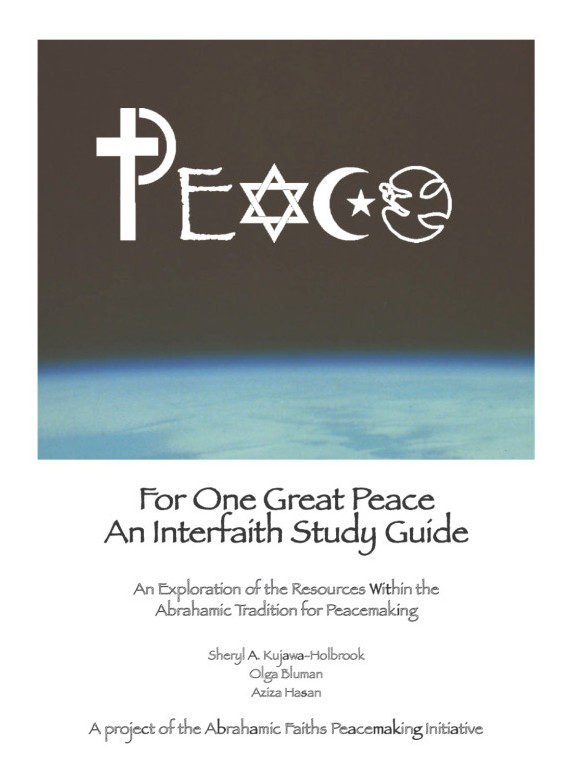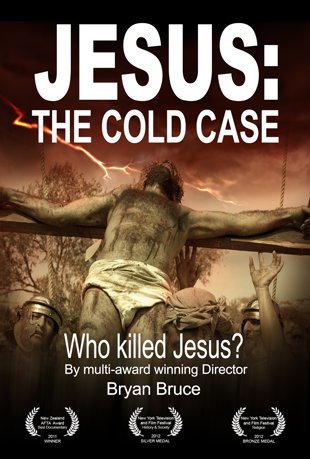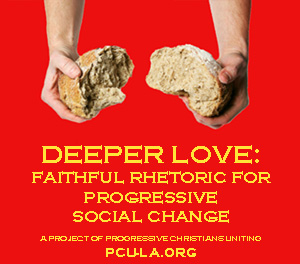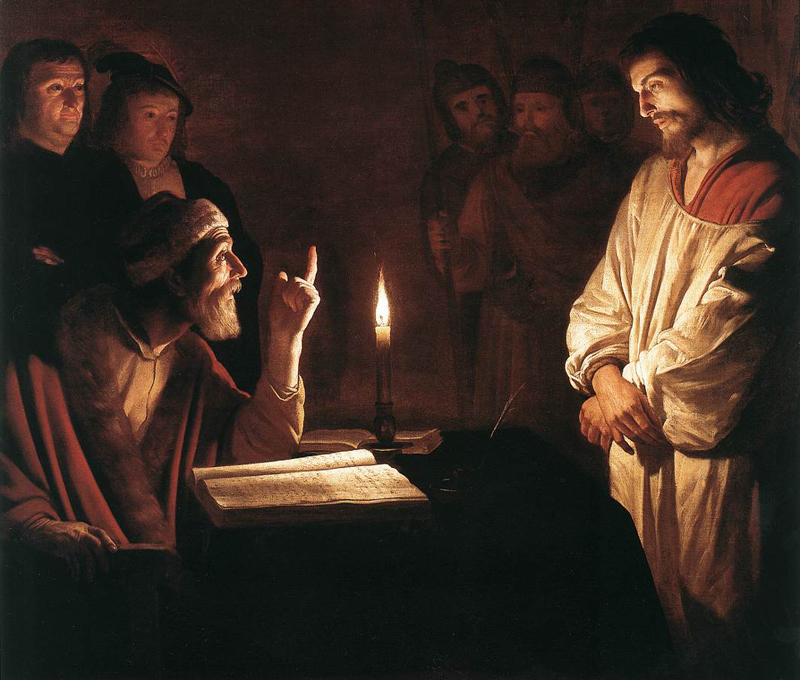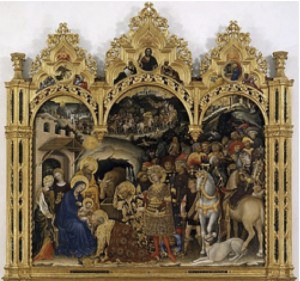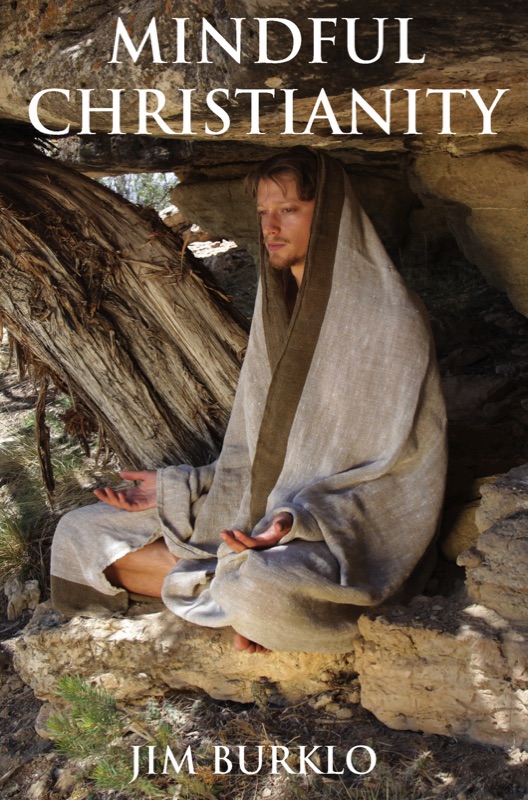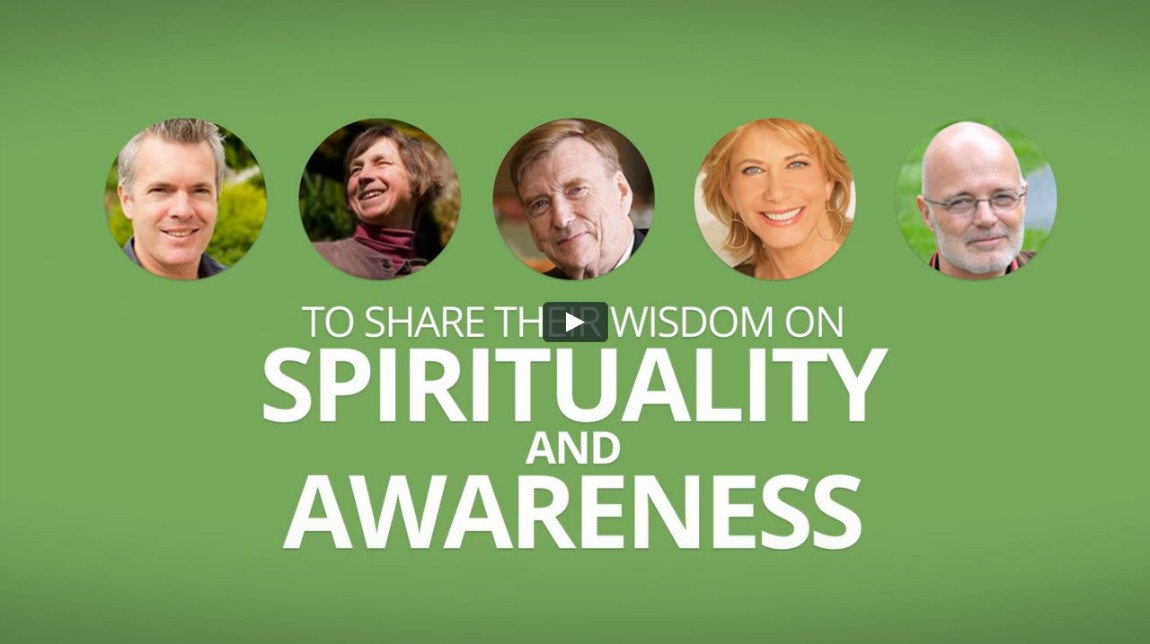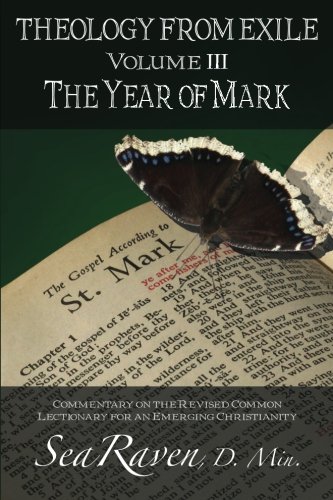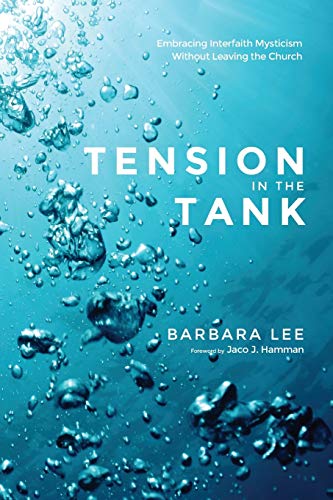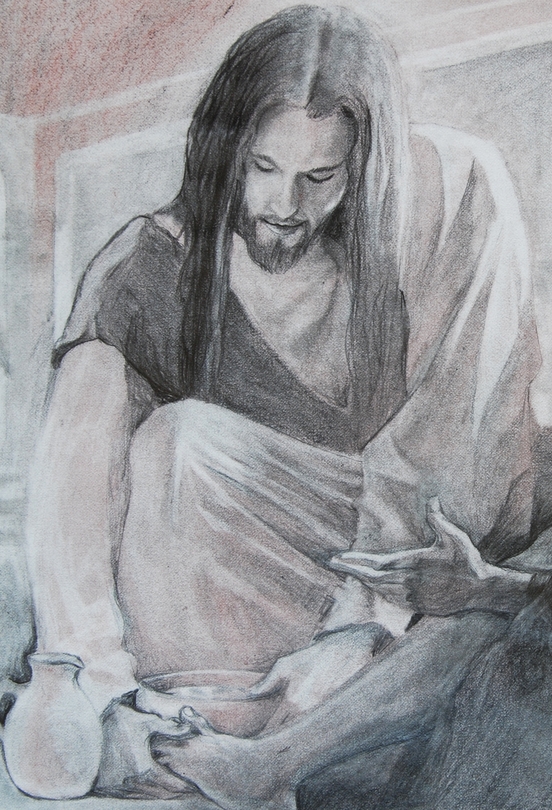Join preeminent New Testament scholars Marcus Borg and John Dominic Crossan on location in Turkey as they trace the Apostle Paul’s footsteps throughout the Roman Empire.
From the Greek word, hypocritis, the hypocrite is a ‘play actor.’ While misfortune is befalling us on a massive scale these days, true tragedy is the result of the hypocrite who has the choice to decide to act otherwise.
(and everyone else!)
Every so often, I put out a "musing" that is a guide to my writings and videos. It's that time when churches make plans for their program year, so this is a good moment to share links to my materials for worship, study, and spiritual practice. Use freely. All I ask is attribution!
Work out your faith and renew hope through our film library of spiritual leaders and contemplative pieces.
The Problem with Blessings and Curses
“Have a blest day?” What in this world does that mean? Better luck or good karma, instead of bad? In the ancient world, denoting someone as “blest” was a way of expressing a deity’s special favor towards that person. If that sounds quaint, there are still plenty of people today who believe they can curry favor or improve the odds of achieving more blessings than curses; while politicians routinely conclude their speeches by invoking the Almighty to bless the good ‘ol USA. There’s just one problem. It doesn’t work.
This week I speak with Sir Lloyd Geering, New Zealand theologian and pioneering Christian post-theist. In 1967, Geering was charged with heresy by the Presbyterian Church in New Zealand. He successfully withstood this challenge and has continued writing and speaking about religion and holy texts as a human constructions and words like "God" and "faith" as referents of human self-understanding and growth. He is the author of many books and articles, a few of which can be found in the links below.
In May 2017, people from all over the world will gather in Portland, Oregon to share knowledge and wisdom, learn from each other, celebrate, be inspired, and find the tools needed to create and enliven local movements within our communities. Together we will explore sacred oneness, Christ consciousness, eco-spirituality, social justice and the way of universal and personal transformation that honors the Divine in all.
Wise and loving God: Sometimes we have come to you like little children with broken toys to be fixed. Many times you have healed our broken hearts and frayed relationships.
most free online
These curricula can be used with a broad range of constituencies including schools, youth groups, universities, community groups and grassroots interfaith organizations. And these resources address a broad range of issues including education, social justice, ecology, peace-building, conflict-resolution, spirituality, diversity and global consciousness.
Teen and Young Adult Curriculum
Spiritual Activism is a concept originating from the understanding that youths’ incredible energy can be guided into living a life based on the “will to good” and positive social change. This begins by seeking inner peace and a connection to our consciousness. You can and you will activate your own calling for a life of meaning reflected in daily actions and service for the greater good.
Interfaith peacemaking cannot be limited to a religious “program.” Rather, it is integral to the well-being of all humankind. This vision encompasses both ethical practice as well as public policy-making in our local communities. It challenges faith communities to develop spiritual grounding for people that enables them to hold their own religious truths, while at the same time respecting the religious truths of their neighbors.
A Spiritual Path for Personal Transformation
An aging Vietnam vet suffering from PTSD returns to Da Nang after 50 years in order to try to do something for those still afflicted generations later by the lingering toxic affects of Agent Orange. His nagging conscience leads to a redemptive act of self-healing and a common good. Spirituality is often an amorphous and bandied about term that too often connotes the merely religious type, as somehow distinct from those who are not. Instead, I appreciate something as equally shared as it is often neglected, namely the human conscience and our sometimes-belated conscious awareness of it.
A Partner Organization of ours, Progressive Christians Uniting, created this excellent curriculum to help people grow in their communities to care for the earth both personally and socially. These resources are for small group formation. Thank you friends at PCU for sharing! Check out our new "Go Green" action item under Resources on the home page for more tips and info on climate change.
Spiritual practices are the best ways we know to demonstrate kindness and courtesy toward the Earth, to express our gratitude and wonder, to yield to the mystery and the beauty of it all. In observance of Earth Day we offer a set of practices (based on the Alphabet of Spiritual Literacy) you can do to honor the Earth over the next months.
In his native New Zealand Bryan Bruce writes, directs and hosts the internationally successful crime show THE INVESTIGATOR in which he re- examines unsolved crimes In 2010 he decided to apply his criminal investigative methods to the ultimate cold case : Who Killed Jesus and Why?
(This is adapted from emails I sent to students, faculty, and staff in the course on mindfulness I'm teaching at the USC Keck
Deeper Love is a web resource, updated regularly with input from its users, offering faith-based language for progressive political and social action. It provides activists, lay and clergy people, politicians, campaigners, and organizers with inspiring rhetoric to advance social change. Deeper Love is edited by Rev. Jim Burklo, Associate Dean of Religious Life, University of Southern California, with the Theological Reflection Committee of Progressive Christians Uniting. Deeper Love is a project of Progressive Christians Uniting – pcu-la.org - a social justice activist organization based in Los Angeles, California, a Partner Organization of ours.
Satire and Blasphemy in the Teachings of a Galilean Sage
Radical religious extremists with a distorted view of Islam commit horrific acts of terror, executing the staff of a small satirical French publication. The satirists had dared to depict the Prophet Mohammed in cartoon caricature; all the while lampooning those misbegotten adherents who in turn regard such irreverent acts as blasphemous. The Western world reacts with outrage and defiance to such an affront. World leaders join a million person protest and unity march through the streets of Paris, chanting “Je Suis Charlie,” in defense of freedom of speech, and on behalf of the publication’s name. While a clear distinction might be drawn between the use of words and the vehement reactions they may incite, more profound underlying questions remain. While anti-blasphemy laws are common in Muslim countries, countless other "secular" countries have laws against the defamation of religion, as well. Once the dust settles and more thoughtful discussion ensues, one might ask what constitutes the differences between hate speech and freedom of expression? This commentary consider s esus' use of what was deemed blasphemous satire, it's intended purpose, and well-known consequences.
How do you account for / explain the different versions of the same event? To what extent does it matter in your understanding and experience of Jesus that the details that describe such a fundamental event in his life are not an agreed Gospel record across Mark, Matthew and Luke? Why did John ignore all the details of the baptism of Jesus?
by Alexander J. Shaia with Michelle Gaugy
"The nine Beatitudes reflect diverse parts of a harmonious unity which I endlessly reflect and touch each other as we go through our lives. At the very heart of Jesus's teachings, their practice opens us to compassion. If we are able to place these on our hearts, walk with them on our feet, hold them in our hands, and seal them in our thoughts, we will have more insight along our journey. They will become our walking staff and guide for the arduous times we will face.
The challenge for a progressive Christian who has moved beyond such notions as virgin births and gods disguised in human form come to save us from ourselves is to remember that it is as much a historical development, as it is a theological one. That is, the attribution of a “Christ” title accorded a very human Jesus constitutes the imaginations -- if not machinations -- of an early Church; consisting of very human, second-generation followers of a 1st century Galilean peasant sage and itinerant preacher. And who all but drowned out the authentic voice of the one who was once born and dwelt among humankind. Such an assertion is simply based on the fact the historical Jesus never self-identified as the “anointed one,” the Christ. As such, if one were to remove the Christ-title from the various birth narratives of those secondary traditions of this religious movement, what would remain of the “Christmas story” that has become as prevalently assumed, as it has been unexamined? If we took the Christ out of Christmas, what might remain of the voice of one who was born and dwelt among us? You can read more here.
Mindful Christianity is mysticism: the experience of a human being in spiritual union with the divine, seeing each other with the same eye. The observer within you, when you are deep in mindfulness meditation, is God. God is lovingly attentive toward your every experience, every feeling, urge, and thought. In mindfulness practice, God notices all of that is going on inside of you, with deep compassion and without judgment.
Beyond all the things that divide us, both from ourselves and each other, awareness brings us back to our essential oneness. In June 2014, Ian Lawton, founder of soulseeds.com, had a series of transformative conversations with renowned spiritual leaders from many traditions on the topic of awareness. Whether you caught the conference live or not, you can now access any or all of it in the way that best suits you. Find out more below about the DVDs, CDs and book version of the conference and increase the peace, both within and in the world. This conference has aired, but you can still own all 31 sessions!
Ian interviews 31 experts including Bishop Spong and Matthew Fox
Beyond all the things that divide us, both from ourselves and each other, awareness brings us back to our essential oneness. In June 2014, Ian Lawton, founder of soulseeds.com, had a series of transformative conversations with renowned spiritual leaders from many traditions on the topic of awareness. Whether you caught the conference live or not, you can now access any or all of it in the way that best suits you.
Published on Sep 29, 2014 When you no longer believe that God is a cosmic puppeteer, why pray? An exploration of progressive Christian ideas about prayer. In the stories handed down to us from our ancestors, we hear the disciples of Jesus ask, "Lord teach us to pray!" For generations Christians have continued to seek ways to communicate with the ONE we call God. Progressive Christians seek new ways of understanding God and notions of God as a cosmic puppeteer who lives in the sky are being replaced with images which point toward the Reality which lies at the heart of all that is. As we begin to see God as the ONE who lives and breathes in, with, through, and beyond us, our understanding of prayer is evolving. This Keynote presentation includes youtube videos of John Shebly Spong - Honest Prayer Parts I and II, and Fred Plumer on Prayer and Progressive Christianity.
The political, social, spiritual, and economic history of most of the Western world has been defined by the belief articulated in the literal application of John’s gospel to personal and social piety. If Christianity is to survive with any relevance to postmodern, twenty-first century realities, the theology of condemnation and substitutionary atonement associated with the fourth gospel has to be scrapped. Not only is the future of Christianity at stake. This theology threatens the further evolution of human consciousness, and life as humanity has known it thus far on Planet Earth.
Wisdom from 13 Traditions on 9 Universal Themes: Justice, Gratitude, Peace, Service, Compassion, Forgiveness, Healing, Nature, Prayer
Join Ian Lawton, founder of Soulseeds.com, for transformative conversations with renowned spiritual leaders from many traditions as we explore awareness.
Ultimately, Tension in the Tank is about faith that is relevant, secure and ever-evolving. It is a guidebook for building meaningful relationships with Spirit, self and each other. Radically open to possibility and wonder, Tension in the Tank offers the opportunity and challenge to live our faith in such a way that the walls between us come down and we become pursuers and enactors of universal justice.
The idea of a second coming of Christ is a mystery, if not explicitly controversial. Jesus’ followers apparently believed he would return during their lifetime after he was crucified. When that didn’t happen, later followers gradually changed the belief into an indefinite “someday.” After two thousand years of waiting, most Christians no longer look for it to happen in their lifetimes and acknowledge that Jesus may have been speaking metaphorically about his return. It is just as likely that those words were put into Jesus’ mouth by the gospel writers themselves. Wishful thinking?

